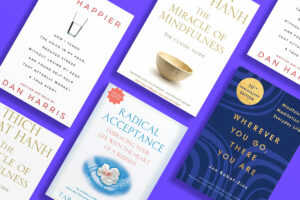
Emotional Intelligence (EI) is a critical skill that can significantly impact your personal and professional life. It involves the ability to understand and manage your own emotions, as well as the emotions of others. As the workplace evolves, EI is becoming increasingly important for effective leadership, teamwork, and overall success. In this article, we’ll explore practical steps you can take to enhance your emotional intelligence, providing you with actionable strategies to apply in your daily life.
Understanding Emotional Intelligence
Before diving into the practices, it’s essential to understand what emotional intelligence entails. Daniel Goleman, a psychologist who popularized the concept, identifies five key components of EI:
- Self-Awareness: Recognizing your emotions and their impact on your thoughts and behavior.
- Self-Regulation: Managing your emotions healthily and productively.
- Motivation: Harnessing emotions to pursue goals with energy and persistence.
- Empathy: Understanding the emotions of others and responding appropriately.
- Social Skills: Managing relationships to move people in desired directions.
These components form the foundation of emotional intelligence, and improving each can lead to significant personal and professional growth.
Practical Practices to Enhance Emotional Intelligence
1. Cultivate Self-Awareness
Self-awareness is the cornerstone of emotional intelligence. By understanding your emotions, you can better control your reactions and interactions. Here are some ways to cultivate self-awareness:
- Mindfulness Meditation: Regular mindfulness practice can help you become more attuned to your emotional states. Apps like Headspace or Calm offer guided meditations to get you started.
- Journaling: Keeping a journal of your thoughts and emotions can provide insights into your emotional patterns. Reflecting on your entries can help you identify triggers and responses.
- Seek Feedback: Ask for feedback from trusted friends or colleagues about your emotional reactions. Honest feedback can highlight areas you might not see yourself.
Mindfulness meditation has been shown to increase self-awareness and emotional regulation. Studies have demonstrated that individuals who regularly practice mindfulness have greater emotional awareness and are better at recognizing their emotions as they arise. Journaling, on the other hand, allows you to explore your feelings in depth and identify patterns over time, which can lead to improved self-understanding.
2. Practice Self-Regulation
Self-regulation involves managing your emotions, especially in stressful situations. Improving self-regulation can lead to better decision-making and stronger relationships. Try these techniques:
- Breathing Exercises: Simple breathing exercises can help calm your mind and body. Techniques like the 4-7-8 breathing method can reduce stress and improve focus.
- Positive Self-Talk: Replacing negative thoughts with positive affirmations can shift your emotional state. Practice phrases like “I can handle this” or “I am in control.”
- Delay Response: When you feel a strong emotional reaction, take a moment to pause and breathe before responding. This can prevent impulsive decisions and actions.
Incorporating breathing exercises into your daily routine can have a significant impact on your emotional well-being. The 4-7-8 method, where you inhale for four seconds, hold your breath for seven seconds, and exhale for eight seconds, can quickly induce a state of relaxation. Positive self-talk helps reframe negative thoughts and encourages a more constructive outlook, while delaying your response allows you to respond thoughtfully rather than reactively.
3. Enhance Your Motivation
Motivation in EI refers to your inner drive to achieve goals despite obstacles. It’s about staying committed and maintaining a positive attitude. Here’s how you can boost your motivation:
- Set Clear Goals: Define what you want to achieve in both the short and long term. Having clear goals provides direction and motivation.
- Celebrate Small Wins: Acknowledge and celebrate your achievements, no matter how small. This can boost your morale and keep you motivated.
- Stay Positive: Surround yourself with positive influences and practice gratitude. Positive environments and attitudes can enhance your motivation and resilience.
Setting clear goals gives you a roadmap to follow, making it easier to stay motivated and focused. Celebrating small wins along the way reinforces your progress and keeps you motivated. Research has shown that gratitude practices, such as writing down things you are thankful for, can increase overall happiness and resilience, making it easier to stay motivated in the face of challenges.
4. Develop Empathy
Empathy is the ability to understand and share the feelings of others. It’s crucial for building strong, trusting relationships. To develop empathy:
- Active Listening: Practice listening without interrupting. Pay attention to both verbal and non-verbal cues and show that you understand by summarizing what the other person said.
- Perspective-Taking: Try to put yourself in the other person’s shoes. Consider how they might feel and why they might react the way they do.
- Express Understanding: Use phrases like “I understand how you feel” or “That sounds really challenging” to show empathy and support.
Active listening involves fully engaging with the speaker, not just hearing their words but also understanding their emotions and intentions. By summarizing what they have said and reflecting back, you demonstrate that you are truly listening and valuing their perspective. Perspective-taking requires you to step outside of your own viewpoint and consider situations from another person’s angle, which can deepen your empathy and understanding.
5. Improve Social Skills
Strong social skills are essential for effective communication and relationship management. Improving these skills can lead to better teamwork and leadership. Consider these strategies:
- Effective Communication: Practice clear and concise communication. Be aware of your body language, tone, and the clarity of your message.
- Conflict Resolution: Learn techniques for resolving conflicts calmly and constructively. Focus on finding solutions rather than placing blame.
- Build Rapport: Take the time to build rapport with colleagues and peers. Show genuine interest in their lives and well-being.
Effective communication is about more than just exchanging information; it’s about understanding the emotion and intentions behind the information. By being mindful of your body language, tone, and clarity, you can ensure that your message is received as intended. Conflict resolution skills are crucial for maintaining harmony in relationships, and building rapport with others fosters trust and cooperation.
Applying Emotional Intelligence in the Workplace
Improving your emotional intelligence can have a profound impact on your professional life. Here are some ways to apply EI in the workplace:
- Leadership: Leaders with high emotional intelligence can inspire and motivate their teams, leading to higher productivity and job satisfaction.
- Teamwork: EI fosters better communication and collaboration among team members, leading to more effective teamwork and problem-solving.
- Conflict Management: High EI can help you navigate and resolve conflicts more effectively, creating a more harmonious work environment.
Case Study: Google’s Project Aristotle
Google’s Project Aristotle studied what makes teams successful. They found that psychological safety, or the belief that you won’t be punished for making a mistake, was the most critical factor. Teams with high EI, where members felt safe to express themselves and understood each other’s emotions, were more successful. This highlights the importance of emotional intelligence in creating effective teams.
The Role of Emotional Intelligence in Personal Relationships
Emotional intelligence isn’t just valuable in the workplace; it’s equally important in personal relationships. By enhancing your EI, you can improve your interactions with family and friends, leading to more fulfilling and harmonious relationships. Here are some ways EI can benefit your personal life:
- Improved Communication: High EI allows for better communication, helping you express your thoughts and feelings clearly and listen to others effectively.
- Stronger Relationships: Understanding and managing your emotions can lead to deeper and more meaningful connections with others.
- Conflict Resolution: High EI helps you navigate conflicts with empathy and understanding, leading to more constructive and less confrontational outcomes.
Strategies for Personal Relationships
To apply emotional intelligence in your personal relationships, consider these strategies:
- Practice Empathy: Make a conscious effort to understand and appreciate the emotions of your loved ones. Show that you care by actively listening and responding with empathy.
- Communicate Openly: Be open and honest about your feelings and encourage others to do the same. Open communication builds trust and reduces misunderstandings.
- Manage Stress: Use EI techniques like mindfulness and positive self-talk to manage stress in your personal life. This can help you remain calm and composed in challenging situations.
Resources for Further Development
To continue developing your emotional intelligence, consider these resources:
- Books: “Emotional Intelligence” by Daniel Goleman, “The EQ Edge” by Steven J. Stein and Howard E. Book, and “Primal Leadership” by Daniel Goleman, Richard Boyatzis, and Annie McKee.
- Courses: Online platforms like Coursera and Udemy offer courses on emotional intelligence.
- Workshops and Seminars: Look for local or virtual workshops that focus on developing EI skills.
The Science Behind Emotional Intelligence
Understanding the science behind emotional intelligence can provide deeper insights into its importance and how it works. Research in neuroscience has shown that EI is linked to the brain’s ability to process emotional information and regulate emotional responses. Key areas of the brain involved in emotional intelligence include the amygdala, which processes emotions, and the prefrontal cortex, which is responsible for decision-making and self-regulation.
Neuroplasticity and Emotional Intelligence
Neuroplasticity refers to the brain’s ability to reorganize itself by forming new neural connections throughout life. This means that, with practice, you can improve your emotional intelligence. Activities such as mindfulness meditation, journaling, and empathy exercises can strengthen the neural pathways associated with emotional awareness and regulation.
The Impact of EI on Mental Health
High emotional intelligence is associated with better mental health outcomes. People with high EI are better equipped to handle stress, anxiety, and depression. They are more resilient and have better coping strategies, which contribute to overall well-being.
Integrating EI into Organizational Culture
Organizations that prioritize emotional intelligence can create more positive and productive work environments. Here are some ways to integrate EI into your organizational culture:
- Training Programs: Implement training programs focused on developing EI skills for employees at all levels.
- Leadership Development: Encourage leaders to develop their emotional intelligence and lead by example.
- Performance Reviews: Include EI competencies in performance reviews and development plans.
- Team Building: Use team-building activities to foster emotional intelligence and improve team dynamics.
Benefits of an Emotionally Intelligent Organization
Organizations that foster emotional intelligence can benefit in several ways:
- Increased Productivity: Employees who are emotionally intelligent are more motivated, engaged, and productive.
- Better Employee Retention: A positive work environment with strong EI can lead to higher employee satisfaction and retention.
- Enhanced Innovation: Teams with high EI are better at collaborating and coming up with creative solutions.
Conclusion
Emotional intelligence is a vital skill that can enhance your personal and professional life. By cultivating self-awareness, practicing self-regulation, enhancing your motivation, developing empathy, and improving your social skills, you can boost your EI and achieve greater success. Start incorporating these practices into your daily routine and observe the positive changes in your interactions and overall well-being. Remember, like any skill, emotional intelligence requires ongoing effort and practice, but the benefits are well worth it.
Improving emotional intelligence is not a one-time effort but a continuous journey. With dedication and practice, you can develop the skills needed to navigate the complexities of human emotions and relationships effectively. Whether in your personal life or your professional career, enhanced emotional intelligence can lead to more meaningful connections, better decision-making, and a more fulfilling life. To further develop your emotional intelligence and access a wealth of insightful summaries from top books on the topic, consider subscribing to BookBits. Our audio book summaries offer convenient, actionable insights to help you grow and succeed. Start your journey with BookBits today and unlock your full potential.


